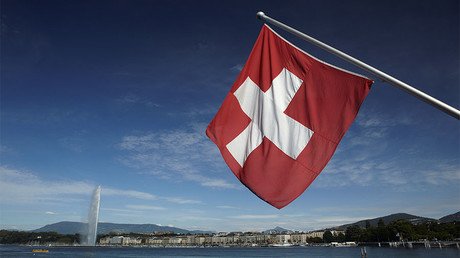'Severe unintended consequences': OPEC threatens to kill US shale
OPEC is ready to produce at full capacity if the NOPEC (No Oil Producing and Exporting Cartels Act) bill is passed in Washington, an action that would likely kill the cash intensive US shale industry.
The oil minister of the UAE, Suhail al-Mazrouei, reportedly told lenders at the meeting that if the bill was made into law that made OPEC members liable to US anti-cartel legislation, the group, which is to all intents and purposes indeed a cartel, would break up and every member would boost production to its maximum.
This would be a repeat of what happened in 2013 and 2014, and ultimately led to another oil price crash like the one that saw Brent crude and WTI sink below US$30 a barrel. As a result, a lot of US shale-focused, debt-dependent producers would go under.
Also on rt.com Venezuela electricity crisis may ‘challenge’ global oil market – IEABankers who provide the debt financing that shale producers need are the natural target for opponents of the NOPEC bill. Banks got burned during the 2014 crisis and are still recovering and regaining their trust in the industry. Purse strings are being loosened as WTI climbs closer to US$60 a barrel, but lenders are certainly aware that this is to a large extent the result of OPEC action: the cartel is cutting production again and the effect on prices is becoming increasingly visible.
Indeed, if OPEC starts pumping again at maximum capacity, even without Iran and Venezuela, and with continued outages in Libya, it would pressure prices significantly, especially if Russia joins in. After all, its state oil companies have been itching to start pumping more.
The NOPEC legislation has little chance of becoming a law. It is not the first attempt by US legislators to make OPEC liable for its cartel behavior, and none of the others made it to a law. However, Al-Mazrouei’s not too subtle threat highlights the weakest point of US shale: the industry’s dependence on borrowed money.
Also on rt.com Russia aims to reach OPEC+ production cut quota by end-MarchThe issue was analyzed in depth by energy expert Philip Verleger in an Oilprice story earlier this month and what the problem boils down to is too much debt. Shale, as Total’s chief executive put it in a 2018 interview with Bloomberg, is very capital-intensive. The returns can be appealing if you’re drilling and fracking in a sweet spot in the shale patch. They can also be improved by making everything more efficient but ultimately you’d need quite a lot of cash to continue drilling and fracking, despite all the praise about the decline in production costs across shale plays.
The fact that a lot of this cash could come only from banks has been highlighted before: the shale oil and gas industry faced a crisis of investor confidence after the 2014 crash because the only way it knew how to do business was to pump ever-increasing amounts of oil and gas. Shareholder returns were not top of the agenda. This had to change after the crash and most of the smaller players—those that survived—have yet to fully recover. Free cash remains a luxury.
Also on rt.com BP boss Dudley says US shale is 'a market without a brain’The industry is aware of this vulnerability. The American Petroleum Institute has vocally opposed NOPEC, almost as vocally as OPEC itself, and BP’s Bob Dudley said this week at CERAWeek in Houston that NOPEC “could have severe unintended consequences if it unleashed litigation around the world.”
“Severe unintended consequences” is not a phrase bankers like to hear. Chances are they will join in the opposition to the legislation to keep shale’s wheels turning. The industry, meanwhile, might want to consider ways to reduce its reliance on borrowed money, perhaps by capping production at some point before it becomes forced to do it.
This article was originally published on Oilprice.com















